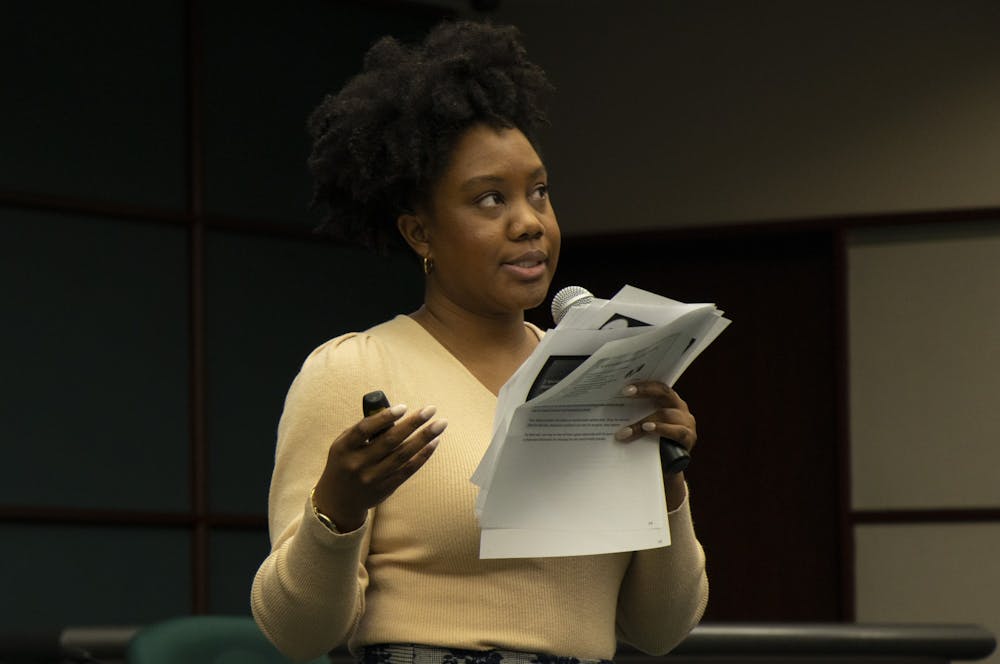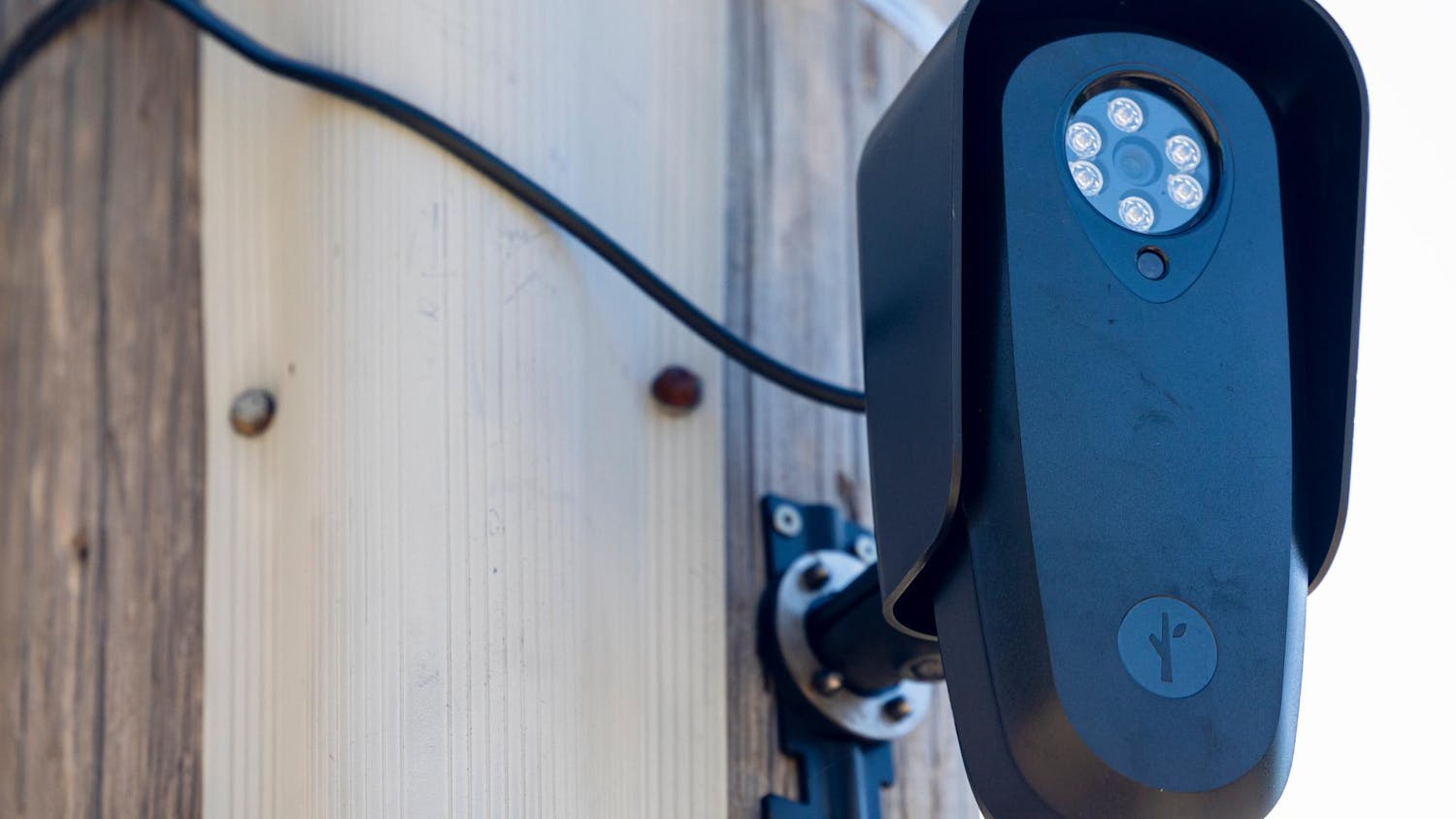Around 50 Bloomington residents gathered Tuesday at City Hall to listen to speakers talk about local black-owned businesses and the health of black people as part of the State of the Black Community address.
The address featured discussions on how the Bloomington community can better support local black-owned businesses and proper health care for black people. William Hosea, chairman of the Bloomington Housing Authority, emceed the event and led the discussion on issues black-owned businesses often face.
Hosea said black-owned businesses are less likely to be passed down to the next generation. He said they often have difficulty starting up, are more likely to be turned down for loans and are less likely to earn capital.
There are 42 black-owned businesses in Bloomington, and their annual revenues total more than $2.5 million, Hosea said. Almost 75% of the businesses are home-based as well, meaning they are run from residences or online, not their own building.
The best way to overcome this issue is for the community to support local black-owned businesses, Hosea said.
Nichelle Whitney, chair of the Monroe County Women’s Commission, continued the discussion by talking about the health of black men.
Her talk focused on black men being uncomfortable with the idea of identifying as anything other than heterosexual, despite having had sex with other men. She said this often leads to these men not having safe sex.
“One in two black men who have had sex with men will contract HIV,” Whitney said.
Whitney said a study about black male health was conducted in 2018 in Monroe County. She said the study surveyed 117 people and 45 people took part in focus groups. The participant’s ages ranged from 18 to 74.
Only about 48% of participants said they trust their physicians enough to talk to them about sexual health and go through with suggested treatments, Whitney said. She said 70% of those surveyed said they would not be willing to take PrEP, an anti-HIV medication, and more than 50% of those surveyed said they haven’t heard of PrEP.
Many men reported they didn’t talk about health issues with their doctors because they felt they could pray the issues away, Whitney said.
Whitney said many of these issues with health care stem from adverse childhood experiences, which are potentially traumatic experiences that occur during childhood. About 85% of participants in the study said they have had one or more adverse childhood experiences.
Whitney said she wants to send information from the surveys to IU Health to help physicians understand how to better approach these issues.
Tennisha Riley, a postdoctoral fellow at IU’s Center for Research on Race and Ethnicity in Society, spoke last about black mental health and how to understand racialized trauma.
Riley said 37.4% of black residents in Indiana report having some sort of mental illness such as depression or anxiety. She said this percentage is similar to other races.
Riley said the causes and risks for mental illness in black people include racism and systematic oppression. She said 90% of black adults and youth reported experiencing at least one incident of racial discrimination in the past year. For children, it happens most often in school, she said.
Poverty is a risk for mental illness as well, Riley said. People are more likely to be diagnosed with depression if they’re below the poverty line.
Riley said there is also a mistrust of medical professionals and that people often worry about microaggressions. She said only 2% of psychologists are black, so there aren’t many people of color providing psychological services.
“That shortage is a barrier to access to mental health care,” Riley said.
Riley said the best way to combat these issues is by preparing children for discrimination and instilling racial and cultural pride. She said doing this leads to better mental health and understanding, as well as better educational outcomes.




